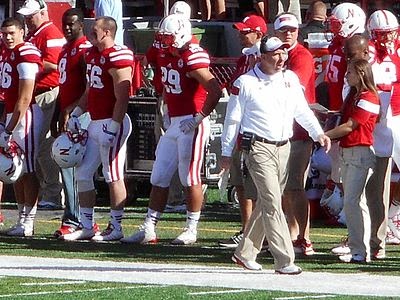.jpg) By now Bo Pelini and his rants are public knowledge. The thing that struck me the most about his complaints was the idea that he did not know the expectations every year. I just happen to work for the same institution. I get paid much less and interview a lot less. I am not sure how I would fair under public scrutiny but I do know something about being judged annually by "higher ups".
By now Bo Pelini and his rants are public knowledge. The thing that struck me the most about his complaints was the idea that he did not know the expectations every year. I just happen to work for the same institution. I get paid much less and interview a lot less. I am not sure how I would fair under public scrutiny but I do know something about being judged annually by "higher ups".I often do not agree with my "higher ups" but I do know that we have a shared goal of improving the lives of Nebraskans starting with our students and expanding beyond it. So while we may not agree on the how we can agree on the what and judge our efforts based on outcomes. The bottom line is that every year I need to strive to be better. After reflecting on what I need to improve I make a plan to pay attention and improve a few aspects of my work, be it teaching, research, or service. I do not need someone to tell me that I am not perfect (though many are happy to point it out) I know what I do well and what I do not.
In the last three semesters I have worked hard on building a classroom community through integrating democratic practices. The idea was to present a learning environment that would model a possible educational model that is different from the one my pre-service teachers see enacted in schools. Every semester I have been just a bit better about building a classroom community allowing students to participate in decision making including classroom rules, grading and participation.
Am I there? NO. My students are still struggling to see how these practices can be translated into classroom practice BUT I can say without any doubt that I am a better teacher than I ever was. I can say that my students know more of what they need to teach reading and writing in the 21st century. The community we built in the classroom was built on shared goals, shared responsibility and an understanding that we are in this together. So if I had to have a goodbye speech to my students it would be about their potential to change the world not how the world is against them (or me).

.jpeg)